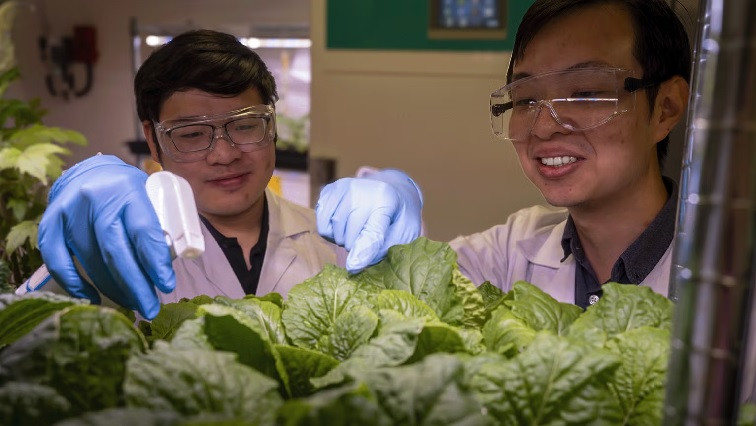The spray is made of nano-sized particles developed by a team led by Assistant Professor Tedrick Lew (Department of Chemical and Biomolecular Engineering, under the College of Design and Engineering at NUS). These nanoparticles are designed to deliver antibacterial compounds directly to the plant’s stomata - the pores on a plant’s leaves that let it breathe, but which can also act as gateways for infection.
“The particles, which we’ve called ‘SENDS’ - short for stomata-targeting engineered nanoparticles - are designed to stick precisely to these pores, like a lock finding its key,” said Asst Prof Lew. “Once in place, they release natural antibacterial agents that stop pathogens from getting inside and infecting the plant.”
The team’s research was published recently in the journal Nature Communications.
According to the United Nations Food and Agriculture Organisation, every year plant diseases destroy an estimated US$220 billion worth of crops globally.
Rising temperatures and shifting weather patterns caused by climate change are giving pests and pathogens more opportunities to spread. Left unchecked, these could erase many of the gains expected from new farming technologies and improved crop varieties.
Smarter tools
“Around the world, climate change is making it easier for plant diseases to spread and harder for farmers to keep them under control,” said Asst Prof Lew. “We need smarter tools that help plants protect themselves in a more precise and sustainable way.”
Unlike conventional pesticides that blanket entire plants and can harm surrounding ecosystems, SENDS delivers treatment precisely where it is needed, minimising waste and collateral damage.
The particles are made from zinc, a micronutrient already found in fertilisers. They are engineered to be porous so they can carry antibacterial agents, and they gradually dissolve after being sprayed, releasing their contents over time. The result is a water-based spray that can be applied just like conventional agricultural treatments and which leaves the plants' natural functions, such as photosynthesis and gas exchange, unaffected.
In lab tests, the research team showed that plants treated with the targeted particles were 20 times more resistant to infection than those given non-targeted treatments. The spray worked on a range of food crops, including leafy vegetables such as pak choy, beans, rice and barley. It also stuck well to leaf surfaces even after rainfall, helping reduce runoff and pollution from excess agrochemicals.
“This is about stopping infections before they start,” said Asst Prof Lew. “By blocking bacteria entry precisely at the gate, we protect the plant without overwhelming it with chemicals.”
The researchers believe the same approach could be adapted for a wide range of crops and used to deliver other treatments, such as pesticides or RNA-based molecules. It should also be suitable for use in most farming regions around the world, they say.
Read the original article on National University of Singapore.







